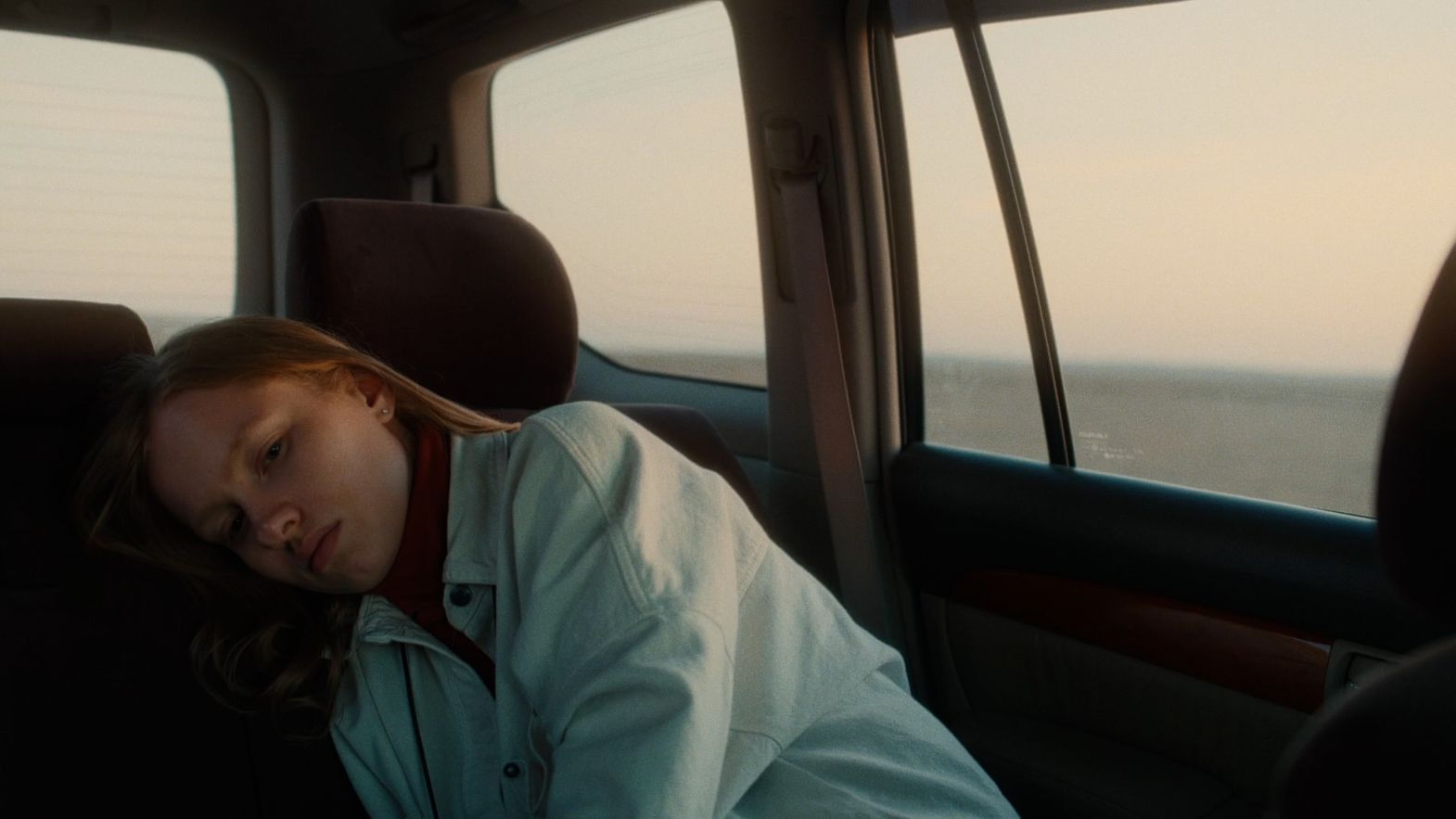Director: Aruan Anartay

Kazakh cinema, and young cinema from Central Asia overall, is on the rise. Two films from the region are being presented at Locarno77: Aruan Anartay’s debut feature Joqtau and Olga Korotko’s second feature Crickets, It’s Your Turn – both lensed by talented cinematographer Aigur Nurbulatova. Joqtau is a poetic journey of immense visual pleasure, though the depiction of the Steppe’s boundless landscapes does not follow the usual trend in world cinema of exoticizing the ethnographic component of the setting. The film traces the journey of Darkhan (Yermek Shynbolatov) and Elena (Irina Balkova), a young couple traveling to the Kazakh countryside to visit Darkhan’s aging grandfather Sagat. Darkhan is a young man who, due to an old nomadic tradition, was raised by his grandparents; he hasn’t visited his birth country for several years. Elena, his partner, is a red-haired Russian girl, somewhat of an outsider (as is the audience), whose point of view subtly takes over the film – at times as a narrator, at times as an observer, a still photographer recounting the embracing journey.
In a gesture uncommon in post-Soviet cinema, Joqtau blends a written fictional story with shreds of reality, giving the film a documentary-like appearance at times. At the beginning of the film, we learn that “Joqtau” is a memorial song sung among Kazakhs as a way to honor the life of somebody who’s passed away – a custom for overcoming grief, and the oldest genre of poetry of the nomadic tribes. And this is precisely what Joqtau the film embodies: a movement that reconnects with the origins, a journey into the past viewed through a contemporary perspective, while at the same time being a film-tribute to the life of Darkhan’s grandfather.
The beauty of Aruan Anartay’s work lies in its ability to craft a profound experience with minimal means, in a completely unpretentious manner: a gaze, a moment of silence, the sunlight on a body, a camera movement – all convey the same expression and emotional significance as a piece of information transmitted with words, if not more.
Somewhere in the film, we learn that traditionally, villages used to be separated from cemeteries by a body of water – a river that divided life from death both physically and symbolically. It is also revealed that only the elder generation speaks Kazakh nowadays, while the rest speak predominantly Russian – reflecting the new generation’s quest for their lost Kazakh identity in a post-Soviet era. These and other contrasting elements are consistently present in the film, representing an intersection between modernity and tradition – yet they are not looked at with fear, prejudice, or nostalgia, but approached with respect and understanding. Therefore, the dramatic core of Joqtau is not a conflict between past and present, but rather the question of how both can progress, hand in hand, towards the future that awaits.